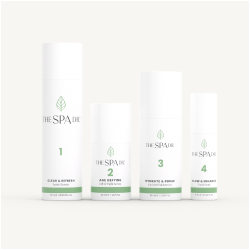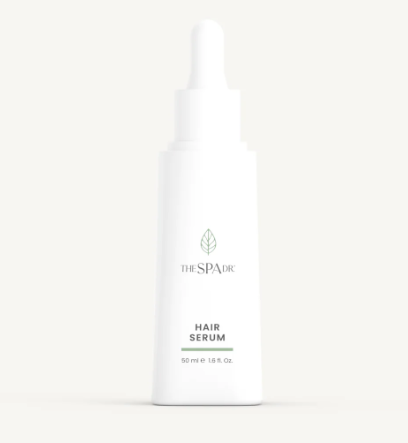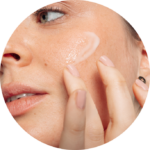“My skin care routine was working so well, but now I don’t see the same results. Why is it not working as well as it used to!?” I’ve heard the question often — and it’s a good one.
Excellent skin care products combined with a consistent routine can keep your skin looking healthy and radiant for years to come and help slow the signs of aging. However, unforeseen factors can hinder the results you are getting from your skin care products. Has your skin care routine stopped working? It’s frustrating and perplexing when your skin care products don’t seem to be working like they’re supposed to — especially when you’re using natural skin care products that don’t contain toxic chemicals.
If your skin care routine isn’t working like it used to, it’s time to take a moment and examine why. There may be a couple of simple things you can change that will help you get your skin back-on-track.
But first, let’s dispel one myth about your routine. Your skin doesn’t build up an ‘immunity’ to skin care products over time. When you apply a product, your skin’s receptors will take it in. If you use a quality formulated product line, the products will perform, and you should see great results.
So, now that myth is out of our way, let’s look at 4 reasons it might ‘seem’ like your skin care products aren’t working — but in reality, it’s routine product choices and behaviors that will make the difference:
1. You’ve Inadvertently Contaminated Your Products
Did you know you may be introducing bacteria and impurities into your skin care products every day? When you stick your fingers in a cream jar you introduce germs — or touch the opening of your skin care container, tube, or pump. Applicators (like droppers) can contaminate your formula when applied directly to your skin. Impurities and germs can disrupt the product’s effectiveness and make their way onto your skin through future uses.
To avoid contamination issues, be sure not to touch the product with your hands or finger. An excellent way to prevent direct contact is by using a skin care tool like a sponge or spatula and then sanitizing after each use. The Konjac sponge is a great option to use with your cleansers. You can squeeze the cleanser directly onto the sponge and rinse it off when you’re done. Also, washing your hands before you start your routine will prevent introducing germs, dirt, and impurities from getting onto and under your skin.
2. You Routine’s Frequency and Consistency Isn’t enough
Changing weather and your skin type are both excellent reasons to use a little more or less product — so you can keep your skin happy and healthy. Often, the reason a skin care routine isn’t working can be linked back to inconsistency and lack of frequency in daily routines. Being consistent is essential, but if you are consistently only washing your face once a day or every other day, then your frequency of use is part of the problem. A good routine will include both. So, if you have fallen-off the consistency bandwagon, or never jumped onto the frequency train. It’s time to change your approach.
Let me know if this sounds familiar. You purchase a new skin care product because it promises you great results – only to use it a couple of times before saying, “it doesn’t work for me.” Skin care isn’t an overnight miracle. It takes a few weeks to start seeing real results. If consistency and frequency is something you struggle with, renew your commitment to your skin. Use new products for at least six weeks, following the recommended package directions of once or twice daily.
3. Mixing Brands and Ingredients Isn’t Working
Everyone has played bartender with their skin care products at some point. We hear about a new product that has impressive results and we start mixing cocktails of multiple brands, products, and ingredients. Playing the mixologist may seem appealing, but here are a few things to consider. Redundancy can lead to an overdosed of an individual component. Yes, you can have too much of a good thing, for example – vitamin A (retinol). Or the ingredients aren’t meant to be used together. If they don’t work well together, they can cancel each other out, or worse, react with each other. For example, vitamin A (retinol) and C are not good together and can cause severe irritation. Some ingredients, when mixed, will change the pH balance – disturbing or even destroying your natural skin microbiome. If your skin microbiome becomes disrupted, your skin’s ability to protect itself will be compromised. Skin pH is delicate, and various skin issues can arise depending on your skin type. Ultimately, mixing brands means you may not be getting the optimal benefit intended by each product. Using a skin care system formulated and designed to cleanse, nourish, protect, and revitalize your skin will ensure your skin is well cared for with the right combination and quantity of ingredients for optimal results.
4. Poor Storage
Ingredients can be compromised by exposure to different elements. For example, once you’ve opened and started using a product, it is now exposed to the air and will start reacting over time. Oxygen in the air will degrade the ingredients – like metal rusting over time. Only, the oils and other elements in your skin care aren’t going to take nearly as long as metal to oxidize. I recommend replacing open containers every 6 months – 1 year. However, if you’re consistently and frequently using your products (to get the results you’re looking for), you shouldn’t have products expiring on your counter.
Exposure to sun, heat, humidity, or the lack of moisture can all degrade products. Does the mirror in your bathroom ever fog up? If so, your skin care may be vulnerable to fluctuating temperatures that can compromise the stability and effectiveness of ingredients.
During the hot summer months, you might want to consider storing skin care products that contain sensitive ingredients like vitamin A and C in the refrigerator to protect them. However, oil-based products like serums can start to separate or become cloudy in extreme temperatures. An ideal place to store your skin care products is in a cool, dry place out of direct sunlight, such as a cabinet or drawer in your bedroom.
The goal here is to fine-tune your routine and habits to determine what has changed to cause your skin care routine to stop working like it used to work. Keep in mind that your skin is a reflection of what is going on inside your body. Hormone imbalances and fluctuations, hydration, as well as nutritional deficiencies, can be reflected in skin issues. Healthy skin starts from the inside out, and a healthy diet will also help your skin look great! You can learn more about the different causes of skin issues in my bestselling book Clean Skin from Within.












Reader Interactions